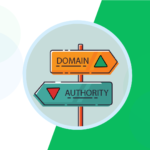If you have a business website, you’ve likely tried strategies to improve your search engine optimization. You may not have mastered SEO, but you know it’s crucial to attracting traffic to your website.
Lead generation and SEO are among the two most important elements for creating an effective marketing plan to grow your business.
Lead generation involves cultivating interest in your business so you can attract qualified prospects to nurture and hopefully transform into customers and loyal brand ambassadors. No business can survive without leads.
What is SEO?
SEO is the process of improving the quality and quantity of leads your business receives by increasing your website’s visibility on search engine result pages. When done correctly, SEO can ensure your company’s website shows up prominently on Google (and other search engines) for people in your area who are searching for your products and services online. The higher your web pages rank, the greater the likelihood that Google and other search engines will display your pages to users for relevant search queries.
Why is SEO so important?
There are many reasons why SEO is important for your business. To understand how SEO converts to sales, you’ll need a solid understanding of how optimization works. It’s an ongoing process that helps search engines like Google to find your website and ensure you show up in search results. You need search engines to find your website so they can send relevant search traffic to your website. These website visitors are leads that you’ll want to convert into paying customers. This is also known as conversion. Ranking high in search results is essential to attracting enough website traffic to convert.
Website visitors need to convert to sales for your efforts to be sustainable because sales are what contribute to your bottom line. SEO can be a fundamental part of your marketing strategy and a game-changer in increasing online and in-store sales.
Did you know there are over 3.5 billion searches on Google every day? Many of the searches are for products and services, including what you sell.
The more relevant traffic you can attract, the more chances you will have to convert those visitors into customers. If you aren’t sure where you stand right now, here’s what Google looks for when ranking. High rankings put you in a visible position in search results, making it more likely that people will find you.
What is an SEO strategy?
An SEO strategy is the process of putting together website’s content by topic to improve the likelihood of appearing in search results. Having an SEO strategy is important because it helps you stay on track when creating content. Instead of just creating what you think people are looking for, your strategy will ensure that you’re creating content that people are searching for.
How does SEO impact lead generation?
As previously mentioned, SEO and lead generation are two different strategies. SEO is focused on optimizing the different aspects of your website so that it ranks high in search engines for various keywords and drives more web traffic.
Lead generation, on the other hand, has to do with increasing the number of customers and prospects for your business.
The connection between them comes down to the impact that SEO has on lead generation. SEO can complement a business’s lead generation efforts by increasing awareness for the company through organic traffic to the website. The more often your website shows up on Google’s first page, the easier it is for your target customers to find you and learn more about your business solutions.
7 Tips to boost lead generation with SEO
Increasing lead generation through SEO will be an ongoing effort, but as you’ve learned above, it can pay off when you get it right. There is no perfect formula or combination of steps. Instead, there are strategies to improve your results and tactics you can test to see what works for your business.
Try these tips to use SEO to help grow your lead generation:
1. SEO-optimized content and On-page SEO
There are many reasons why on-page SEO is crucial to your success, so if you want to boost lead generation, then you must pay attention to on-page techniques. Search engines crawl through every component of your website to determine your ranking in key search results, from the content on each page down to the very structure of your site. Everything must be optimized to provide a user-friendly experience. Build an active blog with optimized blog articles. By posting content regularly, you are essentially providing fresh content, keywords, backlinking, images, social media engagement and so on.
- Do keyword research: When someone searches for your products or services online, what words are they using? Do keyword research to find the most important keywords in your industry, and then embed them in your headline and throughout your blog content.
- Post Blog Articles Regularly: To get the most from your SEO efforts, you need to create content consistently. Sharing fresh, unique content on your website on a regular basis is not only attractive to your customers, but it’s also good for your SEO. Effective content marketing helps attract high-quality traffic to your website, improve your rank in key search results, and establish your business as an industry leader.
- Optimize Meta Tags: Titles & Descriptions are important for SEO ranking because they are the first thing users look at when scanning through a results page to see which result to click.
- Optimize Images with alt text: To improve your website SEO via images, make sure you tag every image you upload to your website with an alt tag/ alt text. This way, Google can read the image, gather further evidence of your page’s relevancy, and also index the image for image-only searches.
- Internal links: Each time you publish a post on your blog, you must link it to other relevant content on your website. This improves usability, boosts page views, and helps to spread the link juice.
- Format content: Be keyword clever. Your content must not only be packed full of value, but it must also be very easy for your readers to consume and digest. Use formatting best practices to make your content easier to read and more engaging.
2. Increase your page speed/load time
Page speed is the speed at which an individual page loads on your website. Different pages can have different speeds due to factors found on the page. Examples of these factors could be images, scripts or plugins. Page speed affects search engine rankings. Google’s main goal is to provide its users with the best experience possible, and the speed at which your website runs is a massive factor in helping them achieve that goal.
Core Web Vitals are a subset of a larger initiative by Google to provide unified guidance for quality signals that are essential to delivering a great user experience on the web. Google has confirmed that Core Web Vitals will be a ranking factor in the Page Experience Update.
You can use a tool like Pingdom or Google PageSpeed Insights to help you check your website speed. Once you know how your site is performing, you can start to improve your load times based on the suggestions the tool makes.
3. Use Social to Grow Your Audience and Reach
If you aren’t sure exactly how social media helps SEO, you are not alone. Many marketers are confused about the impact that social media has on SEO.
Google says that social signals are not among its ranking factors, but data from Search Engine Journal shows that social media can help your website rank better.
It could be argued that social media has an indirect correlation with SEO because the more of a social media presence you have, the more likely you are to attract those who will link to you.
Beyond that, social media is also a great way to show a more human side of your organization, it can be used as a direct marketing tool thanks to resources like Facebook Ads, and you can even use social sites to bolster your customer service efforts.
4. Manage Your Customer Reviews Carefully
Customer reviews positively impact SEO, as well as your overall rankings. They act as a strong signal to Google and other search engines that your website is trustworthy and authoritative (the positive reviews, anyway).
Reputation management isn’t always something people talk about when they discuss SEO, but it’s an important element that shouldn’t be ignored. Reputation management, therefore, is all about making sure you put your best foot forward online when customers go looking for you, and you can do this by:
- Always being professional when engaging with customers online
- Regularly reviewing online reviews
- Responding to negative reviews quickly, calmly, and professionally
- Encouraging positive reviews and testimonials from satisfied customers
5. Start link building
Link building is the activity of acquiring links from other sites to your own. Links help users to easily navigate between pages on the web. They also help search engines to crawl between individual pages on your site, as well as between entire websites on the internet. When crawling through your site, a search engine’s goal is to determine how relevant your content is to its users. If your site provides relevant, unique content that other sites are willing to link back to, search engines are more likely to see it as a quality, trustworthy site. Therefore, building high-quality links is another important component of SEO.
Link building is an important element in your overall SEO lead generation strategy, but it’s important to do it credibly if you want to get positive results from your efforts.
6. Build Local SEO strategies if you are a local business
As noted above, local searches are valuable to your business and can increase foot traffic to your place of business. Local SEO is more focused on helping you rank higher in the area where your business operates. Look for opportunities to use local SEO to show up in searches for your city or delivery area. Use local keywords and landing pages to help draw this traffic to your business. Remember to make your content mobile-friendly for these users.
Use the following local SEO strategies to benefit your business:
- Claim listings in online directories: Use online directories to build and market yourself so you can create a stronger presence online.
- Optimize content for local search: Use local keyword data to optimize your content and tell your audience exactly who you are and where you are.
SEO is key to the success of any modern business, not only because it can increase your visibility and reach online, but also because it can help you boost sales by driving more traffic to your site, providing you with more opportunities to convert leads into customers, and giving you the tools you need to increase conversion rates. SEO has the potential to help bring qualified visitors to your website and accurately track how many new customers are gained from your organic search results.
But as you can see, there’s a lot that goes into SEO, so it can take a lot of time and effort to successfully implement and maintain a strategy. Leave it to the experts so you can focus on your business! At Perfect Web Creations, we provide our clients with a complete team of industry experts who specialize in SEO strategies.






